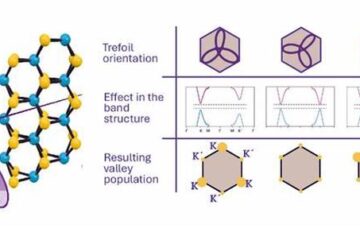'Multi-target' immune therapy improves outcomes of severe lupus nephritis

“In our study, multi-target therapy is shown to be superior to traditional therapy for inducing complete remission of class V+IV lupus nephritis, with few side effects,” comments Dr. Lei-Shi Li of the Research Institute of Nephrology of Jinling Hospital, Nanjing University School of Medicine in Nanjing,China.
The study included 40 patients with severe lupus nephritis. Lupus nephritis is inflammation of the kidneys occurring in patients with the immune system disease systemic lupus erythematosus (SLE). All patients had “class V+IV” disease, meaning widespread inflammation and decreasing function of the kidneys. “This is a severe form of lupus nephritis that is traditionally treated with a single immunosuppressant drug, but the efficacy is very poor,” says Dr. Li. “We considered that, since the impact of severe SLE on the kidney involves various parts of the immune system, it is necessary to treat the different immune targets with a combination of immunosuppressant drugs.”
One group of patients received this “multi-target” therapy, consisting of the immunosuppressant drugs tacrolimus and mycophenolate mofetil—commonly used as anti-rejection drugs in transplant patients—plus a steroid. The other group received standard treatment with a single immunosuppressant drug (cyclophosphamide).
The complete remission rate, with recovery of normal kidney function, was about four times higher among patients receiving the three-drug combination. “For patients receiving multi-target therapy, the complete remission rate reached 65 percent at nine months, versus only 15 percent under traditional therapy,” says Dr. Li.
Some patients in both groups had partial remission, with some return of kidney function. Overall, 95 percent of patients in the multi-target therapy group had partial or complete remission, compared to 55 percent with single-drug therapy. The rate of most adverse effects was also lower with multi-target therapy.
Systemic lupus erythematosus is an autoimmune disorder, in which the immune system attacks healthy organs and tissues. By reducing immune system activity, treatment with immunosuppressant drugs has improved most outcomes for patients with SLE. However, class V+IV lupus nephritis continues to be a major problem—it has a poor response to traditional treatments and can lead to permanent kidney damage. “The prognosis is very poor, so it is important for us to develop a new regimen for the treatment of this type of lupus nephritis,” says Dr. Li.
Using a combination of drugs that affect different immune targets, multi-target therapy improves the chances of remission for patients with severe lupus nephritis. “The therapeutic effect of our multi-target therapy is apparently superior to traditional therapy for inducing complete remission of Class V+IV lupus nephritis, and also bears good tolerance under relatively lower dosages,” Dr. Li adds.
The authors stress that their study is only preliminary. The study includes a small group of patients from a single hospital, with a relatively short follow-up time. Larger randomized trials with longer follow-up are required.
Media Contact
All latest news from the category: Health and Medicine
This subject area encompasses research and studies in the field of human medicine.
Among the wide-ranging list of topics covered here are anesthesiology, anatomy, surgery, human genetics, hygiene and environmental medicine, internal medicine, neurology, pharmacology, physiology, urology and dental medicine.
Newest articles

Simplified diagnosis of rare eye diseases
Uveitis experts provide an overview of an underestimated imaging technique. Uveitis is a rare inflammatory eye disease. Posterior and panuveitis in particular are associated with a poor prognosis and a…

Targeted use of enfortumab vedotin for the treatment of advanced urothelial carcinoma
New study identifies NECTIN4 amplification as a promising biomarker – Under the leadership of PD Dr. Niklas Klümper, Assistant Physician at the Department of Urology at the University Hospital Bonn…

A novel universal light-based technique
…to control valley polarization in bulk materials. An international team of researchers reports in Nature a new method that achieves valley polarization in centrosymmetric bulk materials in a non-material-specific way…





















